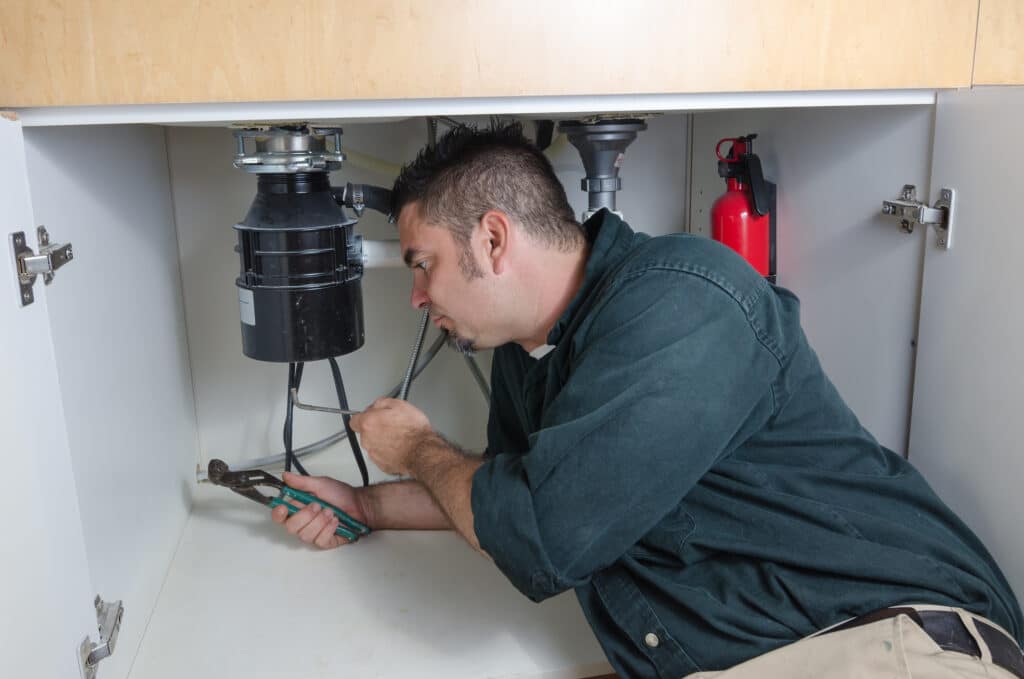
5 Signs Your Garbage Disposal Needs Repair
Are your garbage disposals struggling to keep up? A functioning garbage disposals are more than just a convenience; they’re an essential part of maintaining a clean and efficient kitchen. By grinding food waste and preventing clogs, they help streamline meal prep and cleanup.
However, like any appliance, garbage disposals can face wear and tear. Ignoring the signs of trouble could lead to larger issues, such as costly repairs or even replacement. In this guide, we’ll explore five key signs your garbage disposal needs repair and how addressing them promptly can save you from unnecessary kitchen headaches.
Why Regular Maintenance Is Essential for Garbage Disposals
Maintaining your garbage disposal isn’t just about avoiding inconvenient breakdowns—it’s a smart way to protect your kitchen’s functionality and your wallet. Here’s why regular care is crucial:
Preventing Costly Repairs
Addressing minor issues early can prevent them from turning into expensive fixes. A small clog or a loose part might seem insignificant but, when left unaddressed, can escalate into major motor damage or leaks that require professional intervention.
Regular checks and cleaning ensure that your garbage disposal operates efficiently and keeps costly repairs at bay. By catching problems early, you save both time and money while extending the functionality of your appliance.
Extending Lifespan
Proper maintenance can significantly extend the lifespan of your garbage disposal, helping it last well beyond the average 8–15 years. Consistent care, like avoiding fibrous foods and keeping blades sharp, ensures the internal components remain in optimal working condition.
Neglecting small issues such as dull blades or loose fittings can reduce its effectiveness and lifespan. With regular upkeep, your garbage disposal remains a reliable tool for years, reducing the need for frequent replacements.
Avoiding Kitchen Disruptions
A malfunctioning garbage disposal can cause a chain reaction of issues in your kitchen, disrupting your daily routines. Clogged drains, persistent foul odors, and even water leaks are common problems that arise from neglect.
These issues can turn your once-efficient workspace into a frustrating mess, slowing down meal prep and cleanup. Routine maintenance helps you avoid these disruptions, keeping your kitchen functional and odor-free.

5 Signs Your Garbage Disposal Needs Repair
A well-functioning garbage disposals are essential for maintaining a clean and efficient kitchen. When problems arise, recognizing the signs early can prevent costly repairs and keep your kitchen running smoothly. Below are five key indicators that your garbage disposals may need professional attention.
1. Unusual Noises
If your garbage disposal is making loud grinding, rattling, or humming sounds, it’s a clear sign of trouble. These noises often result from loose internal components, jammed objects, or worn-out parts struggling to function.
Ignoring these sounds can lead to more serious damage, such as motor failure or blade misalignment. Promptly addressing unusual noises can save your disposal from irreparable harm and restore its efficiency.
2. Persistent Clogs
A garbage disposal is designed to handle minor food waste efficiently, so frequent clogs suggest an underlying issue. Clogs that persist despite proper use may indicate dull blades, buildup of debris, or damage to the unit’s mechanisms.
When waste fails to break down, it can accumulate in the pipes, leading to slow drainage and potential backups. Regular cleaning and professional inspections can resolve the cause of recurring clogs.
3. Foul Odors That Won’t Go Away
A lingering bad smell, even after cleaning your garbage disposal, is another red flag. This odor is often caused by food particles trapped in hard-to-reach areas, where they decompose over time.
In some cases, internal damage or mold growth within the unit could be the culprit. Persistent odors not only disrupt your kitchen environment but may also indicate the need for professional cleaning or repairs.
4. Leaking Water
Leaking garbage disposals are not only inconvenient but also a sign of more significant problems. Leaks are often caused by cracked seals, damaged gaskets, or corrosion inside the units.
If you notice water pooling under your sink near your garbage disposals, it’s essential to address the issue quickly. Failing to fix leaks can result in water damage to your cabinets or flooring, so identifying the source and repairing it is crucial.
5. Poor Performance or Complete Failure
If your garbage disposals aren’t grinding food waste efficiently or have stopped working altogether, they’re likely experiencing mechanical or electrical issues. Common causes include motor burnout, tripped reset buttons, or worn components that need replacement.
Poorly performing garbage disposal can lead to food waste accumulation, clogs, and unpleasant odors in your kitchen. Prompt professional repairs can restore the performance of your garbage disposals and prevent further problems.
What to Do If Your Garbage Disposal Shows These Signs
When your garbage disposal starts showing signs of trouble, taking the right steps can prevent further damage and save you time and money. Here’s what to do if you notice any issues:
Troubleshoot Simple Issues
Before calling a professional, try troubleshooting basic problems that might resolve the issue quickly. If your disposal won’t turn on, check the power supply, ensuring it’s properly plugged in and the circuit breaker hasn’t tripped.
Use the reset button located on the bottom of most units to restart the system if it’s overloaded. For jams, turn off the power and use a hex key or pliers to gently dislodge any stuck debris. Simple troubleshooting can often restore functionality without major intervention.
Avoid DIY Fixes for Major Problems
While minor issues can sometimes be resolved at home, attempting to repair more complex problems without the proper tools or expertise can lead to costly mistakes.
Tasks like fixing leaks, replacing internal components, or addressing electrical failures should be left to professionals. DIY repairs not only risk further damaging the unit but can also void warranties and compromise safety. Knowing when to step back is key to preventing bigger issues.
Call a Professional
If your disposal continues to show signs of malfunction despite basic troubleshooting, it’s time to contact a plumber or appliance technician. Professionals have the expertise and tools to diagnose the root cause of the issue and provide effective repairs.
Promptly addressing persistent problems ensures your garbage disposal remains in good working order, avoiding further disruptions in your kitchen. Regular maintenance from an expert can also help prevent future problems.
Tips to Prevent Garbage Disposal Issues
Proper care and usage are essential to keeping your garbage disposal in peak condition. By following a few simple tips, you can prevent common problems and extend the life of your unit.
Avoid Hard or Fibrous Foods
Certain types of food can be especially damaging to your garbage disposal, so it’s best to keep them out. Hard items like bones, seeds, and fruit pits can dull the blades or cause jams.
Fibrous foods such as celery, corn husks, and potato peels can wrap around the blades, leading to clogs and reduced performance. Disposing of these items in the trash instead of the disposal ensures smoother operation and prevents unnecessary wear and tear.
Use Cold Water When Operating
Always run cold water while using your garbage disposal to keep it functioning properly. Cold water helps solidify grease or fat, allowing the disposal to break it down more effectively without coating the internal parts.
Running hot water, on the other hand, can cause grease to liquefy and stick to the pipes, leading to blockages over time. A steady stream of cold water also helps wash debris through the system efficiently.
Clean Regularly
Regular cleaning prevents food buildup and unpleasant odors, keeping your disposal fresh and efficient. Natural solutions like a mixture of vinegar and baking soda can break down residue and eliminate bacteria.
Grinding small ice cubes with a bit of rock salt can sharpen the blades and remove stuck-on grime. Regular cleaning ensures your disposal remains hygienic and operates at its best.
Run the Disposal Frequently
Even if you don’t use your garbage disposal often, running it periodically prevents rust and keeps its parts moving smoothly. Regular use ensures that the motor, blades, and seals stay lubricated and functional.
Infrequent use can lead to components seizing up or losing efficiency. Turning on the disposal occasionally, even with just water, helps maintain its performance and prolongs its lifespan
Cut Larger Items Into Smaller Pieces
Before placing food waste into the garbage disposal, always cut large pieces into smaller, more manageable chunks. Oversized scraps can put excessive strain on the motor and blades, potentially causing damage over time.
By reducing the size of food waste, you help the system grind it more effectively, ensuring smoother operation. Neglecting this step can lead to clogs, decreased performance, or even motor failure, requiring costly repairs or replacements.
Keep Utensils and Non-Food Items Out of the Disposal
Accidentally dropping utensils, dishware, or other non-food items into the garbage disposal can cause serious damage to its internal mechanisms. The blades and motor are not designed to handle such objects, and attempting to operate the unit with foreign items inside can result in costly repairs.
Always check the sink for stray objects before turning on the disposal to avoid these issues. Installing a sink strainer is a proactive step to catch non-food items and prevent accidental damage to your disposal.
Flush with Dish Soap and Water
After using your garbage disposal, pour a small amount of dish soap directly into the drain and run warm water for about 30 seconds. This practice helps to break down grease, residue, and any lingering particles that could accumulate and cause clogs.
Flushing with soap and water also keeps the unit clean, reducing unpleasant odors and promoting hygiene. Regularly incorporating this step into your routine can significantly improve the performance and lifespan of your garbage disposal..
Avoid Overloading the Disposal
Overloading your garbage disposal with too much food waste at once can put unnecessary strain on the motor and blades, potentially causing them to wear out faster. To avoid this, feed scraps into the disposal in small, manageable amounts, giving the unit time to process each batch effectively.
When overwhelmed, the disposal is more likely to jam, leading to clogs and reduced performance. Regularly practicing this habit not only improves the efficiency of your garbage disposal but also helps extend its overall lifespan.
Restore Your Kitchen’s Efficiency Today!
Is your kitchen workflow being disrupted by a malfunctioning disposal? At Bahama Plumbing, we understand how important a smoothly operating kitchen is to your daily routine.
Serving Fort Worth, Arlington, and surrounding areas, our expert plumbers provide reliable, efficient repairs to address all your disposal concerns.
Don’t let leaks, clogs, or strange noises turn into bigger issues—our team is here to help. Contact us today to schedule your service and get your kitchen back to its full potential!

Frequently Asked Questions (FAQ)
How often should I replace my garbage disposals?
Most garbage disposals last between 8–15 years with proper care and maintenance. Regular cleaning, proper use, and addressing minor issues early can help extend their lifespan. If your garbage disposals show recurring problems like frequent clogs, leaks, or a noticeable drop in performance, it may be time to replace them.
Is it normal for garbage disposals to make noise?
Mild humming or operational noise is normal, but loud grinding, rattling, or screeching sounds from your garbage disposals indicate an issue. These noises are often caused by loose parts, jammed debris, or worn components inside the unit.
How do I prevent odors in my garbage disposals?
Prevent odors by cleaning your garbage disposals regularly with natural solutions like vinegar and baking soda. Running cold water while operating the units helps flush out food particles and prevents buildup. Avoid disposing of grease or fibrous materials, as these can contribute to unpleasant smells.
Why is my garbage disposal leaking?
Leaking garbage disposals can result from cracked seals, damaged gaskets, or corrosion within the unit. These issues can lead to water pooling under your sink and may cause damage to surrounding cabinetry or flooring. If you notice leaks, inspect the connections and tighten loose fittings.

